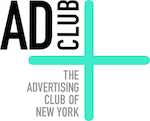NAVIGATING A CHANGING SOCIAL MEDIA LANDSCAPE
The marketing communications industry has seen significant change over the past few years, and to help navigate the changing industry, lawyers from Davis & Gilbert LLP produced their annual 2014 Lessons Learned/2015 Practical Advice. The document highlights major developments in the marketing communications industry, and offer tips and best practices for marketers and their agencies in the coming year.
Over the next few months, AD Club Insider will share sections from Davis & Gilbert’s 2014 Lessons Learned/2015 Practical Advice starting with social media.
Social Media:
After Arby’s posted its now-famous tweet to Pharrell Williams at last year’s Grammy awards, many companies began to question whether different advertising laws applied to social media. That was until Duane Reade re-tweeted a photo of actress Katherine Heigl exiting a Duane Reade with the caption “Even @KatieHeigl can’t resist shopping #NYC’s favorite drugstore.” Heigl filed a $6 million lawsuit against the drugstore claiming that the social media posts violated her right of publicity by using her name and image without her consent. Although the suit ultimately settled for an undisclosed sum, it serves as a reminder to the industry about the risks of using celebrities’ names, images, social media handles and quotations for a commercial purpose without their permission.
The White House also made clear that companies should not use the President’s likeness to promote a product, even on social media. While the White House did not institute formal action against Samsung, it had “conversations” with the company after David Ortiz – Boston Red Sox pitcher and Samsung spokesperson – took a selfie with President Obama, and Samsung re-tweeted the photo to millions of its followers.
While social media platforms routinely update their policies, no platform does it as frequently as Meta. As of November 5th, Meta barred companies from engaging in “like-gated” promotions. Under the new policy, companies can no longer incentivize consumers to “like” a brand’s Meta page.
Regulators also increased their oversight of companies’ social media campaigns. Most notably, the Federal Trade Commission (FTC) investigated Cole Haan’s Pinterest promotion and found that contestants’ pinning of the company’s products constituted endorsements and the fact that contestants received an entry into the contest was a material connection that needed to be disclosed. While the FTC decided not to pursue formal action, the investigation serves as reminder that promotions must comply with the FTC’s Endorsement and Testimonial Guides.
The Food and Drug Administration (FDA) also issued long-awaited draft guidelines for pharmaceutical companies using social media platforms. The draft guidelines made clear that pharmaceutical companies are required to follow all of the promotional labeling rules, even where the space constraints of social media might make that an impossible exercise.
Looking Ahead:
- Marketers should recognize that commercial usage on social media platforms differ significantly from personal usage, particularly when it comes to the use of celebrities’ names and likenesses.
- Marketers should actively manage and monitor their social media campaigns and feeds during live events in accordance with moderation guidelines developed by their marketing and legal teams.
- Marketers should ensure that their written social media policies require endorsers to make appropriate disclosures in social media posts.
- Marketers should expect increased scrutiny from regulatory agencies with respect to endorsement issues on social media platforms.
Authors:
Allison Fitzpatrick, Partner
- 212.468.4866
- afitzpatrick@dglaw.com
Gary A. Kibel, Partner
- 212.468.4918
- gkibel@dglaw.com
Vejay G. Lalla, Partner
- 212.468.4975
- vlalla@dglaw.com
Joseph J. Lewczak, Partner
- 212.468.4909
- jlewczak@dglaw.com
Rohini C. Gokhale, Associate
- 212.468.4978
- rgokhale@dglaw.com

